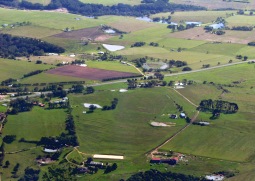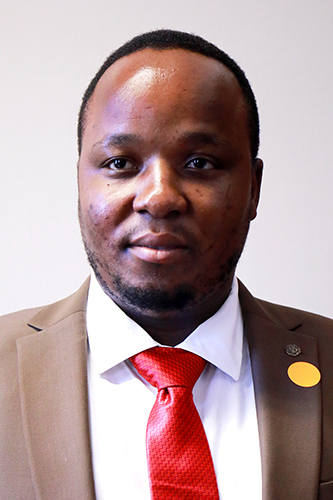
Yes, or no to a change of the Constitution to allow expropriation of land without compensation? This is the question to be answered by hundreds of South Africans who attended the first day of public hearings being held by a delegation of Parliament’s Joint Constitutional Review Committee in Concordia, outside Springbok in the Northern Cape this week.
Old and young stood in line for hours yesterday outside the venue before the scheduled time of the public hearings, to be sure that their views are heard on the matter. During his opening remarks, the Chairperson of the delegation hosting these public hearings, Mr Lewis Nzimande, made it clear that the committee will only focus on the mandate given to it by the National Assembly and the National Council of Provinces. That is, to address the question: is amending section 25 of the Constitution necessary to implement expropriation without compensation?
Mr Paul Swartbooi, an activist in the Northern Cape, spoke fiercely about his sadness when he heard other people of colour supporting AfriForum’s campaign to keep the status quo. “They can’t speak for us. They are the people that took away our right: the colonialist, the farmers, the mining giants. Yet you support them. All they do is create confusion. We want the Constitution to be amended.”
Another community member, Mr Aubrey Baardman, told the committee that 94% of the land is owned by whites in the Northern Cape. This cannot continue. Mr Bryan Boodley, also living in the area, expressed his support for expropriation without compensation, if necessary, for public use and as long as it benefits the ordinary people that were dispossessed.
The morning session was dominated by people who were mostly against amending section 25 of the Constitution. The committee heard from several speakers that large parts of Northern Cape are classified as communal land, which was taken during colonialism and apartheid from communities who had lived there for centuries before that. They still do not own this land; it is in the state’s hands. Most presenters felt that amending the Constitution to allow expropriation without compensation would not help them get their land. What is more, they felt amending the section would make it easier to alienate them further from their land.
Mr Daniel Dawid Cloete from the small town of Steinkopf, said the pre- and post-1994 government held his community’s land in trust. After 1994, they were told to establish an entity to manage it themselves. However, they have struggled to get this entity going and have not received any support from the government to do so.
Mr Andy Pienaar, representing the Kommagas community, said they were concerned that the government will nationalise the land, further alienating the Kommagas from it. “This land rightfully belongs to the indigenous first people!” he exclaimed.
Flanked by bodyguards, AfriForum’s deputy CEO Mr Ernst Roets said that, after holding meetings in the area, he has established that people are angry because they do not own land. Countries that have raised themselves out of poverty respected property rights, he said, while countries which do not descend into authoritarianism and poverty. He cautioned Parliament and government not to follow the latter route.
Community member Ms Delia Hosken, said the effects of colonialism are still being felt to this day. “Our land was taken. [And] I'm not talking about the white man, because the Guptas also came.” Another member of the public, Ms Linda van Wyk, said South Africa's Constitution protected everyone. Land reform did not fail because of the Constitution, she said, but rather because of government.
The hearings for this delegation continue on Thursday, 28 June, in Upington.
Rajaa Azzakani
27 June 2018

